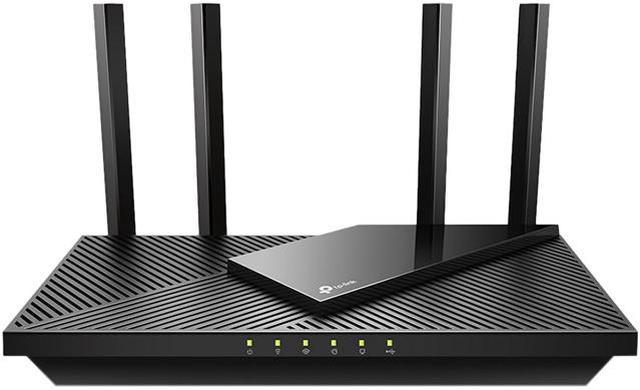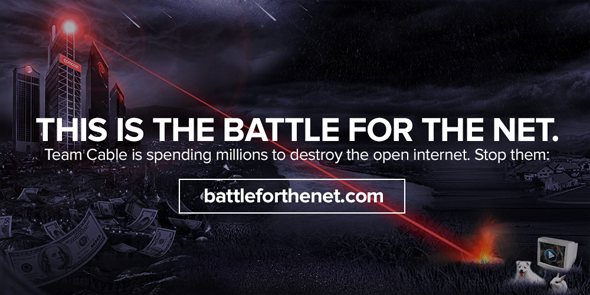You may have noticed yesterday that some of your favorite websites prominently featured a spinning wheel of death. While the pages themselves weren’t really loading slowly, the image was there to symbolically represent what could happen if Team Internet lost the net neutrality battle to Team Cable.
Needless to say, it would be very annoying.
Now that the event is over and we have some numbers to gauge its success, it makes me wonder: Was “Internet Slowdown Day” enough to save net neutrality?
Why We Need to Raise Net Neutrality Awareness
Many popular websites participated in yesterday’s “Internet Slowdown Day” event to raise awareness about net neutrality. The topic has been a hot button issue ever since the FCC began considering creating fast-track lanes for Internet service providers that would allow certain content to be distributed faster than others. But unless you identify yourself as a “techie” or keep up with the news, you probably have no idea what net neutrality is.
This is why raising awareness about net neutrality is important.
On the surface, creating a faster Internet seems like a good thing. But if ISP’s are able to control the content people access, it will severely cripple our ability to communicate freely online. And because the Internet is one of the few places where the freedom of speech is still encouraged, allowing corporations to have control of it will destroy everything we love about the World Wide Web.
Preserving net neutrality is crucial for the future of the Internet and it’s not going to be an easy battle. Huge corporations are looking forward to the day they can control how fast their own content gets delivered and view the debate simply as a matter of dollars and cents. And if you break down exactly who these corporations are, you’ll understand why net neutrality is so important and why people need to take action.
Why Team Cable Wants to Eliminate Net Neutrality
With the advent of online streaming, people realized they no longer needed to pay cable companies high prices for poor service. It’s much easier (and cheaper) to consume media at your leisure than to rely on a company to provide it for you. Combine this fact with poor customer service and a monopolized system, and it explains why so many people are cutting the cable TV cord.
But there’s a problem: Cable companies are also our ISP’s.
Cable Companies That Provide Internet Service
- Comcast
- Verizon
- Time Warner Cable
- AT&T
Depending on where you live, your ISP options depends on your zip code, just like your cable television access. You may want Verizon FIOS for high speed Internet access, but can be forced to use Comcast, unless you’re willing to settle for subpar options like DSL or even slower options offered by the satellite TV companies — and this is where the problems begin.
When cable companies began to realize the Internet would be their biggest competition, they began buying content creators like television stations, movie studios, and streaming platforms. This not only guarantees the cable company makes money on the content you watch, but it also provides a huge incentive to eliminate net neutrality.
Take for example, Comcast — the largest cable company in the world based on revenue. They not only provide cable and Internet access to households, they also own NBC, Universal Studios, and AT&T Broadband among other companies. They even own 32% of Hulu in a partnership with Fox and Disney.
Controlling how fast certain content gets distributed online is a huge conflict of interest for companies like Comcast. Why would they stream Netflix if they want to increase Hulu subscriptions? Why would they broadcast the Super Bowl if it wasn’t on NBC? Why would they have news programs that don’t align with their political affiliations?
The answer is money.
By eliminating net neutrality, cable companies will be able to create a two-tiered Internet where they can charge subscribers (and content producers) money to guarantee their content is distributed equally. This means small business and most people won’t have the same Internet fast lanes as wealthy corporations.
Was ‘Internet Slowdown Day’ a Success?
Anyone that believes in a free and open Internet with no fees or slow lanes needs to stand up against the cable corporations. And the only way to do this is to urge the FCC to reclassify ISP’s to adhere to the same rules as telephone networks — which, ironically, is another service provided by cable companies.
Just like our phone provider can’t dictate who we call or what we say, our ISP’s shouldn’t be able to control what we see or post online. Having an open network of communication on the Internet is not only convenient, it’s how we’ve always had it.
Yesterday’s “Internet Slowdown Day” proved that many companies and Internet users want to preserve net neutrality. Thousands of websites and hundreds of thousands of people took action against the cable companies, but it may still not be enough to urge the FCC to protect net neutrality.
The cable lobby is powerful and is spending millions of dollars to convince politicians that we don’t need net neutrality. The only way to win is for you to take a stand and let them know what you think.
If you want to continue accessing the Internet the same way you always have, fill out this form and let congress and the FCC know how you feel. By doing so, you’re making “Internet Slowdown Day” a success.
And in case you missed “Internet Slowdown Day” yesterday, here’s how it went down:






